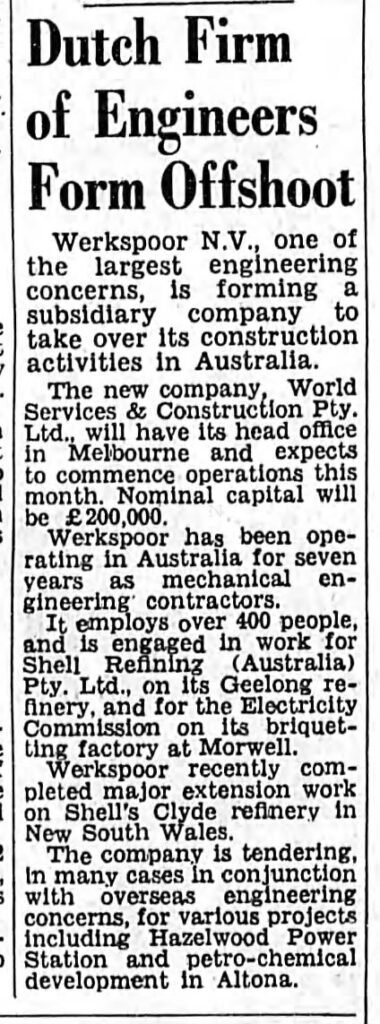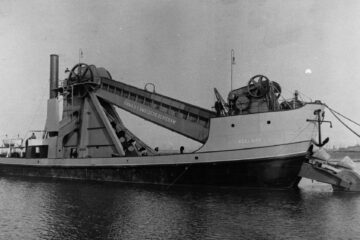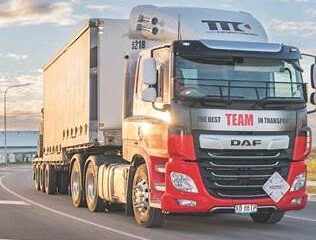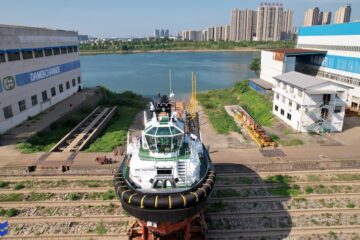In 1952, Werkspoor Engineering Works, a Dutch construction company, was commissioned to construct the Shell refinery plant in Geelong, Australia.
On 18 March 1954, the Geelong refinery became the first of Australia’s post-war refineries to come on stream. Its commissioning sent ripples of excitement throughout the Geelong community and was widely applauded as a major development in strengthening Australia’s industrial capacity. More than 1000 people from 14 countries worked for Werkspoor on its construction, among them a large number of Dutch people, who started to a significant migrant community in Geelong. World-renowned photographer, Helmut Newton, was commissioned by Shell to photograph the project.
Captured in this video clip, the camera sweeps across the expansive worksite, focusing on one towering construction adorned with both Dutch and Australian flags. The completion of a state-of-the-art hostel complex, boasting 300 bedrooms and a dining area capable of serving 500 meals simultaneously, is announced in the narration as the camera pans over its exterior. Notable features include signage and notices in multiple languages and recreational spaces furnished with amenities like dartboards, ping-pong tables, and pool tables for the workers’ enjoyment. By October of the same year, a towering 215-foot crane, hailed as the largest in the Southern Hemisphere, is assembled on the site. The video further showcases a sprawling 90-acre housing development, with a car navigating through the newly constructed residential blocks, affirming the successful progress of the ambitious project as “the dream running to schedule.”
See also: Shell Collection. no. 228. La Trobe Picture Collection. (click next illustration for three more pictures).

Werkspoor N.V. was the shortened, and later the official name of the Nederlandsche Fabriek van Werktuigen en Spoorwegmaterieel. It was a Dutch machine factory, known for rolling stock, (ship) steam engines, and diesel engines. It was a successor of the company Van Vlissingen en Dudok van Heel, later named Koninklijke Fabriek van Stoom- en andere Werktuigen. In 1954 Werkspoor was merged with Stork.
Football clubs
In 1957, Werkspoor formed as a junior football club in Morwell then ultimately morphed into the Fortuna ’60 Soccer Club in 1960.


